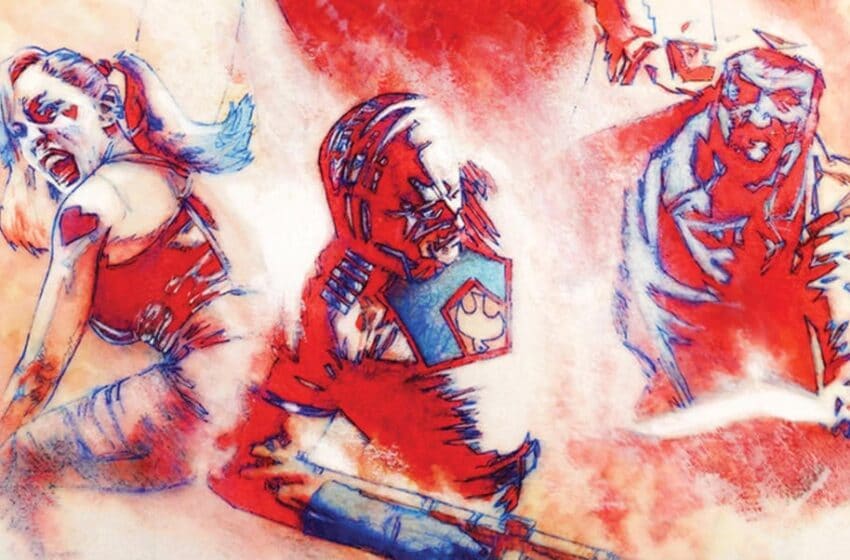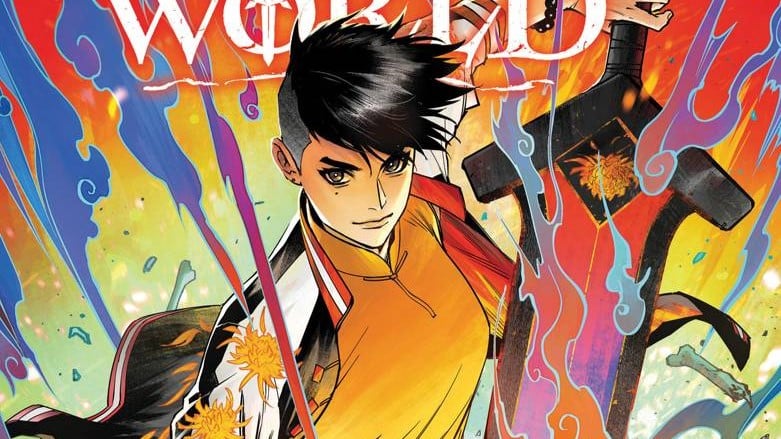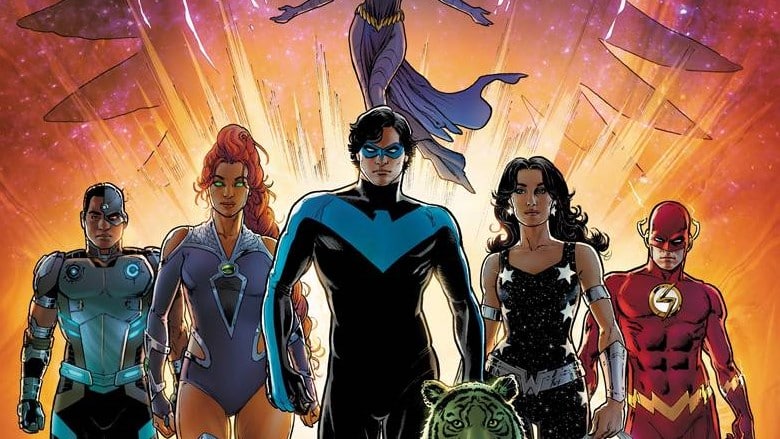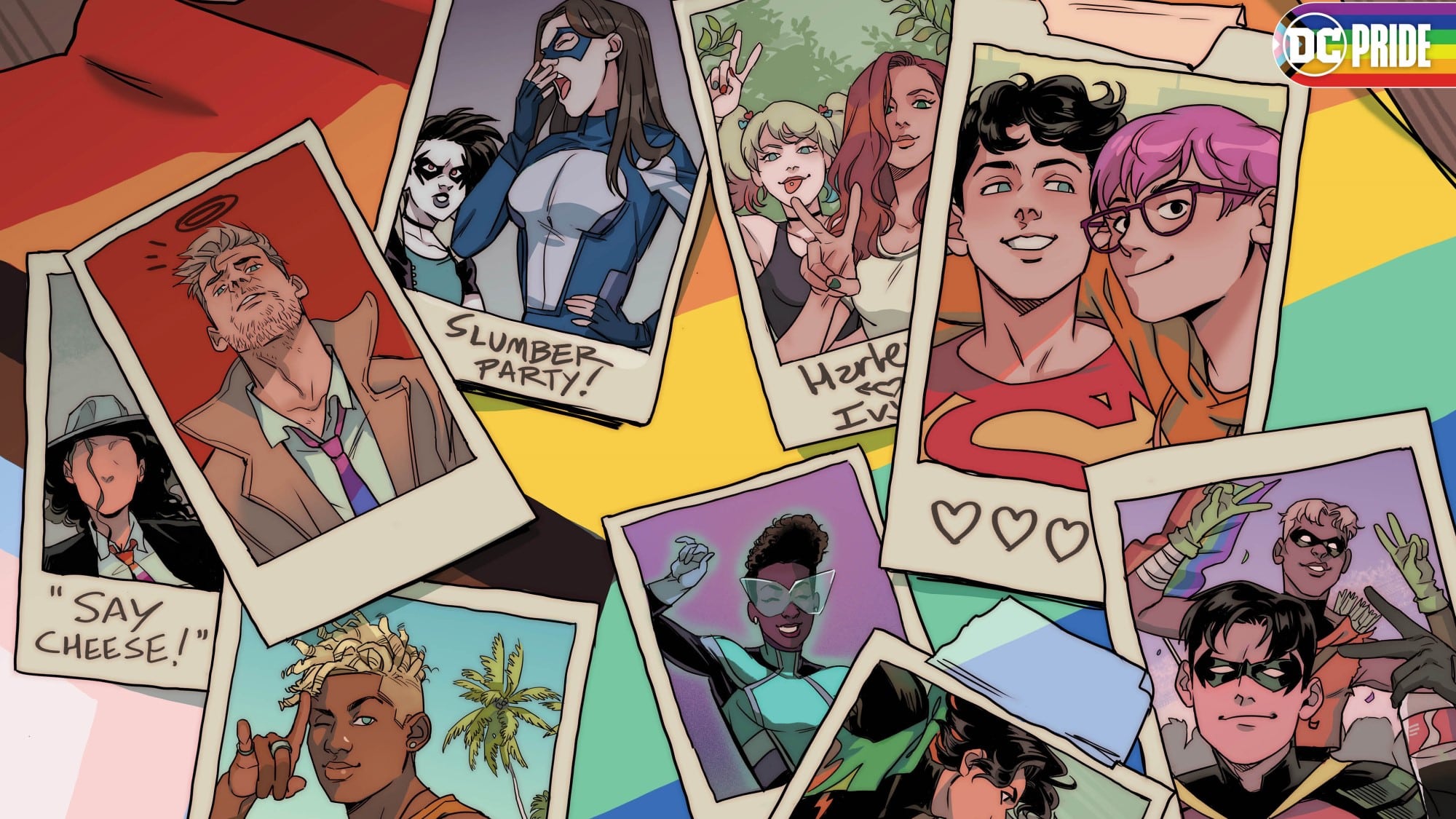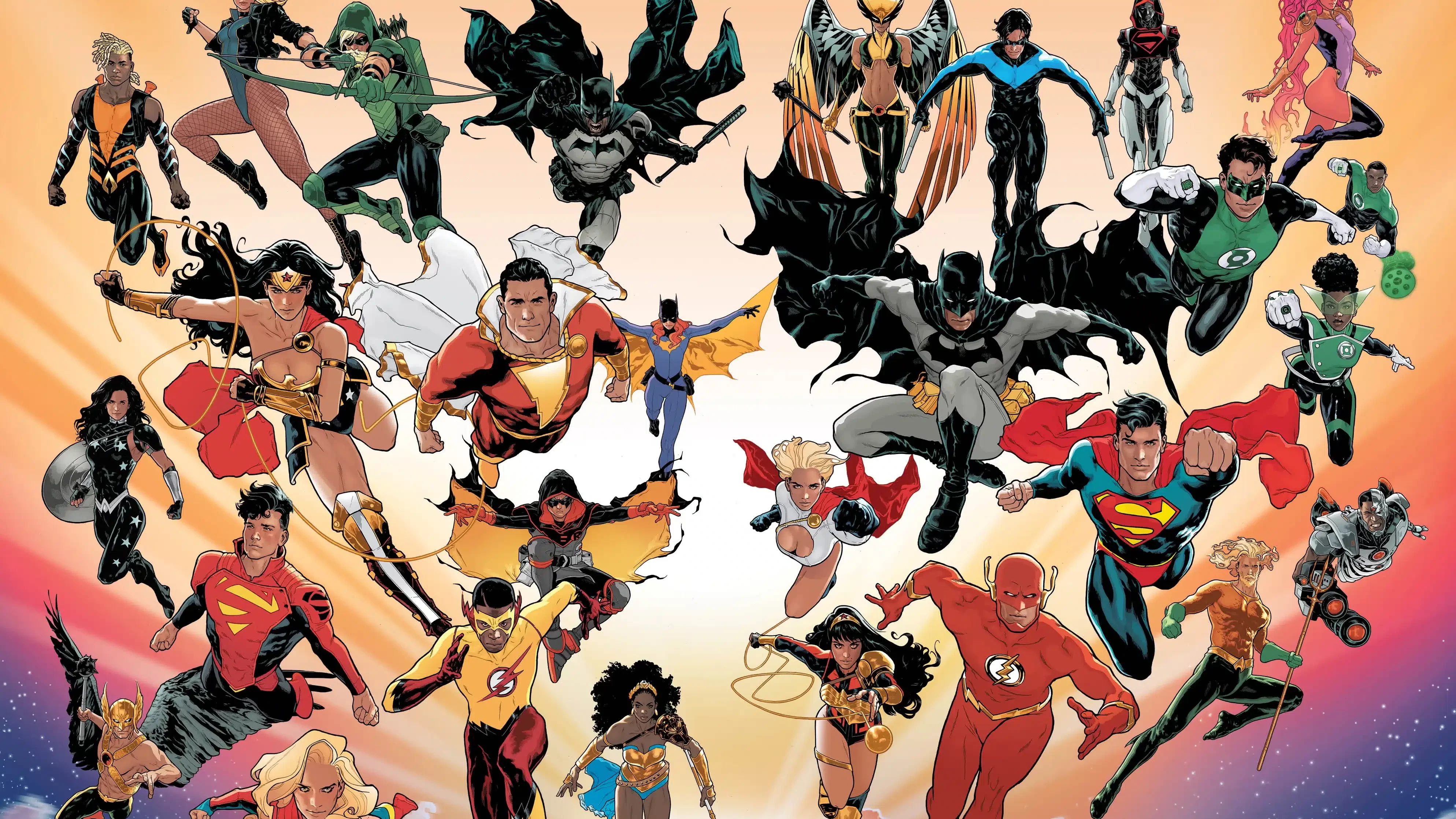The attacks begin without warning. Brutal, sudden…cannibalistic. A metahuman with all the power of Superman but none of his humanity. An unstoppable being ruled only by hunger and instinct, striking at random across the world. To stop this threat, Harley Quinn, Peacemaker, Captain Boomerang and King Shark have been assigned to corral, nursemaid, and if necessary execute five deadly new recruits: the expendable products of a secret government procedure called BLAZE. They’re ordinary prisoners, endowed with incredible power…and the certain knowledge that it’ll burn through them like wildfire. They have six months to live, maximum. If you’re staring down life in prison, maybe that’s a good deal-especially if you’re Michael Van Zandt, desperate to reunite with the mad lover who forsook you after your Bonnie-and-Clyde crime spree. But that power? It’s surprisingly transferable. As each member of the Squad dies…the others get stronger. What would a hardened criminal do with that knowledge? Worse yet: What would a desperate, lovesick idiot do with it? One thing’s certain: this time the Suicide Squad’s bitten off more than it can chew. Win or lose-they all burn.
Suicide Squad: Blaze #1 is written by Simon Spurrier, with art by Aaron Campbell, colors by Jordie Bellaire and letters by Aditya Bidikar

Ari Bard: I think it’s fair to say that we’ve been oversaturated with Suicide Squad stories over the past five year or so, but Suicide Squad: Blaze really stands out from the pack, doesn’t it?
Ritesh Babu: Yes it does! Boy does it. I was quite blown away, to put it lightly.
Ari: It was kind of a surreal experience for me because I don’t think I’ve ever been blown away by a dark, gritty version of anything, and yet that’s exactly what this is. Spurrier, Campbell, Bellaire and Bidikar succeed by taking the ridiculous, bombastic concept we all laugh off and turning it into something much darker. In fact, there’s a lot of elements here that usually don’t work for me when you include an unreliable narrator talking at the reader, but somehow it all manages to come together in this first issue.
Ritesh: I used to not give much time to the Suicide Squad as a conceit, considering how the average Suicide Squad comic tends to be. It’s a flailing franchise that’s desperately struggled and has never lived up to the heights or the promise of that classic Ostrander era. It’s also ballooned to become much bigger than it was ever intended back then, thus removing or at least drastically altering, some of its core appeal, which is that nobody on that team was safe. That was no longer true, particularly with folks like Harley on-board. You just can’t kill off the big names.
But recently, with the James Gunn revitalization I’ve really turned around to see its potential. It’s a conceptual goldmine to EXPLICITLY discuss American Imperialism and The Prison Industrial Complex. It’s very overtly political stuff that if you hope to do right, you kinda can’t just run from certain questions. And y’know what? This is what I was looking for. Something that took all that potential and resulted in a hell of a modern Suicide Squad comic. This is a slam dunk in my eyes.
Ari: That’s true, Suicide Squad will never be what Ostrander did because we all know that no character can be dead for good when they may be proven valuable as intellectual property. You’re right, however, that some important discussions can be had using the concept. American Imperialism and The Prison Industrial Complex are certainly two of those, but the other big conversation Spurrier wants to have seems to be the optics of heroics versus actual heroism, and that’s something I’m finding pretty interesting as well. Suicide Squad: Blaze has certainly grabbed my attention.

Ritesh: Yeah, and it’s a conversation very much interwoven with those two. ‘Optics’ are afterall vital and curated carefully by the powers that be to help enforce and maintain the status quo of things. The conversation had between Boris and Michael is a really interesting one, wherein they talk about why the Suicide Squad or Waller and the government care about one misbehaving super-guy out and about. And it all comes down to the image that America wants to maintain, the image of power it wants to project, and the optics. All about controlling the image of things for a desired outcome. It’s the kind of thing that’s perfect for a Suicide Squad comic like this. And it feels perfect coming from Si Spurrier, a guy from the 2000AD stables, the home of Wagner, Grant, Mills, and many passionately political writers. It’s the kind of thing you expect from this book, and you absolutely get it. I was expecting to really dig it, but I truly was bowled over by HOW MUCH I ended up digging it.
Ari: Yea, it also makes you ask how much control the government actually does have on mainstream superheroes in the DC universe versus how much they’re simply reacting to make it look like they have control. It’s likely that America has just gotten really good at reacting so fast that it appears proactive, and the first priority isn’t even the problem itself, but rather the image of the problem. It’s a side of heroism I’d like to see more of in the future.
Ritesh: Spurrier, Campbell, Bellaire and Bidikar honestly make the DCU into a really compelling setting here, in a way I wasn’t expecting. Earlier you mentioned ‘dark and gritty’ and that it is, but it’s in such a way that it seems to be completely in service of what it is doing? Like, we’re effectively dealing with a horror thriller about taking down a brutal serial killer, just on a superheroic scale, which means governments and supermen and political intrigue. And it really does commit to being horror, too, which helps. Everything feels like it’s to set up the deliberate necessary tone and atmosphere rather than just shock you emptily, which can be an issue with this mode. It’s a very greasy, grimy look at the DC Universe, with all the discomfort and disgust you’d expect when viewed like this. But that’s also what puts it apart and distinguishes it, preventing it from feeling like another generic ‘superhero’ thing. And that’s a trap the Suicide Squad has fallen into a lot in the modern era. It’s generic cape fare. This doesn’t quite feel like that. It’s got its own distinct flavor.
Like, you read Tom Taylor’s Suicide Squad or the Rob Williams run or the current run, or that Brian Azzarello/Alex Maleev attempt recently. We’ve had so many. But none of them find such a clear niche and nail it so hard like this. At least for me.

Ari: Yea, I’m not sure this is a version of the Suicide Squad that’s extremely sustainable longterm, given that creating new characters just to kill them needs to be extremely intentional or else it becomes extremely stale very quickly and undermines whatever message the book may have, but for a prestige miniseries, it works very well. That’s probably how Suicide Squad works best to be honest, one mission at a time.
This definitely feels like the creative team applying what’s working in comics right now, and that is a type of horror focused on making the brutality amorphous. A lot of Tynion’s work comes to mind here as Department of Truth, Nice House of the Lake, and Something is Killing the Children all portray horror or monsters as slightly out of focus or on the periphery rather than something the reader can clearly see. It’s a style I’m starting to appreciate a lot more, as it lets your imagination fill in the gaps. It’s similar to how the prisoners and Suicide Squad members start spiraling even as they can’t quite make out what’s attacking them. A lot more horror can lie in what isn’t shown.
Ritesh: What I was more clearly thinking of was the explicitly Vertigo-tinged loudy political work the team’s coming off of from their amazing Hellblazer run. It is criminal that it died and didn’t get to go on, and this feels like a successor to the spirit of that sort of comics-making, while being very different. The visuals also, of course, made me think about Aaron Campbell’s amazing horror work with Pornsak Pichetshote, Infidel. Another very overtly political piece of horror storytelling which rules.
And yeah, I really do think Suicide Squad now in the modern day works best in these short, really-focused bursts of high quality. This prestige mini/maxi really works for it. You get in, you tell a complete story with a beginning, middle, end, and you get out. It’s all wrapped up to be a nice coffee-table book by the end, which is really the purpose of Black Label.
Ari: Exactly, though I think my comparisons to Tynion’s work is more to do with how things are being conveyed while your comparisons to Hellblazer and Infidel are more apt with regards to what is being said and how the art can be used to convey a message. Both display stories and storytelling directions I am happy to move toward in the future.
Ritesh: For sure. I think this is almost certainly the best Black Label book right behind KSD/Jimenez’s Wonder Woman Historia? I’m quite impressed. Odd as it is to say it for me, I’m really hyped for and looking forward to a new Suicide Squad issue.

